Celebrating the first two albums by THE HUMAN LEAGUE of which he was a founding member, electronic pop pioneer Martyn Ware will be joining HEAVEN 17 vocalist Glenn Gregory to perform ‘Reproduction’ and ‘Travelogue’ at two special shows in September 2020. These will take place at Sheffield City Hall and The Roundhouse in London.
The way it was in the past, a long long time ago, Martyn Ware, Ian Craig Marsh and Philip Oakey released their first single ‘Being Boiled’ on Fast Product in June 1978. The independent label’s impresario Bob Last subsequently became their manager.
A deal was signed with Virgin Records under the A&R directorship of Simon Draper, who had the vision and foresight to realise that THE HUMAN LEAGUE’s synthesizers only sound was the future of pop music; among the band’s early champions were David Bowie and Iggy Pop.
With Adrian Wright on board as a non-playing band member in the role of Director of Visuals, the live concert presentations of THE HUMAN LEAGUE were stark and dark, with Wright’s slides of ‘Star Trek’, ‘Captain Scarlet’ and ‘Hawaii Five-O’ amongst those accompanying the musical trio’s largely static on-stage persona.
The serious music press loved it and highlighted how Marsh performed inside a cage of clear Perspex as a symbol of his detachment and disaffection… it was in fact a gob shield to protect himself and his rig of synthesizers from spittle, a consequence of supporting punk bands like SIOUXSIE & THE BANSHEES!
However, a lack of commercial success at the time led to an engineered split by Bob Last and Virgin Records in 1980. Oakey and Wright, who kept THE HUMAN LEAGUE name, recruited two girls Joanne Catherall and Susanne Sulley to record the massive selling ‘Dare’ with Ian Burden and Jo Callis under the production supervision of Martin Rushent, while Ware and Marsh formed BRITISH ELECTRIC FOUNDATION and its pop subsidiary HEAVEN 17 featuring Glenn Gregory, who also found success with the gold certified ‘Penthouse & Pavement’.
Martyn Ware talked about his time in THE HUMAN LEAGUE and the making of those two seminal electronic pop albums…
This ‘Reproduction’ and ‘Travelogue’ showcase has been mooted for some time now, so what has enabled it to finally become reality?
It’s been quite a long time in the planning. We tested the waters with our agent via various promoters and it took a while to convince them, which I found amazing. They were bit nervous that it might be too confusing for the public, I just said “Put it on, it will sell out!”
It’s about how it’s sold to the public, we’re not pretending we were reforming THE HUMAN LEAGUE, all the publicity states this is HEAVEN 17’s interpretation of those two albums, we’re not trying to be a tribute act. As you well know, I was the major writer on most of those tracks. I always felt they deserved a wider audience, hence why we’ve played a lot of those songs live with HEAVEN 17 anyway.
The Virgin40 thing in 2013 was a stealth testing of the waters to see what the reaction would be, everybody seemed to love it so we decided to start the ball rolling. Eventually the HEAVEN 17 tour of last year tipped the balance that we knew what we were talking about. It is an interesting concept. We’re spending quite a bit of money on the production, I wanted to make sure that was right and the venues were right. Who knows? We might even do a few more of them, if it is deemed to be successful.
Will there be slides to illustrate the songs like at THE HUMAN LEAGUE shows back in the day?
I love the notion of the using original equipment, but the problem of using Kodak 5 projectors is you can get hold of them, but they’re not very bright. That would mean things would have to be quite dark like it was in the first place, plus they’re quite unreliable. So what we’re doing is paying homage to the slides by predominantly keeping the same format and simulating the way the slides use to look and the way they used to change, like with timings and stuff.
So we have Malcolm Garrett in who is kind of taking the place of Adrian Wright. Like him, he’s bonkers and a collector and has a unique take on the visual world. He’s going to be on stage, controlling the slide show, triggering it live, it won’t all be pre-programmed. Because we are doing it via digital means, we have the option to do some other stuff, we’d like to leave a few things as surprises. There are some other visual artists who are involved; there may well be some moving image thing as part of the show.
But there won’t be any need for gob shields?
No! I think all the punks have grown up…
…they’re all lecturers now!
Yeah! A lot of people from my age group were proper punks back in the day! But we will be considering how the synth rigs will look, again we’d like to pay homage to way that it all worked. As well as playing both vinyl albums in order in their entirety, with the CD versions, there were various bonus tracks so some of those will be included in the extended encore.
When ‘Reproduction’ was released in Autumn 1979, THE HUMAN LEAGUE had something of a strange back catalogue comprising of ‘Being Boiled’, ‘The Dignity Of Labour’ and ‘I Don’t Depend On You’ as THE MEN?
Conceptually after we signed to Virgin Records, we wanted to stamp our authority because we were concerned about losing our independent status. So the first thing we did after ‘Being Boiled’ on Fast Product was ‘The Dignity Of Labour’, a completely instrumental 12 inch EP, to show our fans that we had not abandoned our principles.
The other side of the coin was that we were obsessed with disco music and we wanted to prove that with the right resources, we could create a disco song under a different name, so that it didn’t alter people’s perception of the band. I mean, we liked these side project things like Arnold Corns with Bowie. Also, our favourite bands like ROXY MUSIC did singles that were not part of an album, like ‘Pyjamarama’, that kind of artistic f**k you. That was the rationale behind ‘I Don’t Depend On You’, but ironically, looking back on it now, it’s pretty much the template for how HEAVEN 17 went.
As has been indicated by ‘The Golden Hour Of the Future’, there was a lot of material already written, but ‘Reproduction’ had completely new material apart from ‘Circus Of Death’?
We were performing live before we were signed, so ‘Reproduction’ was basically our live set. Virgin insisted we came down to London to record at The Townhouse which I wasn’t entirely sure was a good idea and it proved to be the case. I like the album but the production knocked the stuffing out of it.
Despite having a number of great songs, ‘Reproduction’ does sound a bit cloudy, what was your working relationship like with its producer Colin Thurston?
Colin Thurston was a lovely guy, we were just inexperienced. We were in awe of this amazing studio and the technology, he’d just done Bowie and Iggy Pop so he was a hot rising producer who went on to do DURAN DURAN… we just found him to be a bit white bread. Our live shows were quite punky… it sounds weird but we saw ourselves as synth-punk, we liked the raucousness and distortion of our sound.
But he rinsed that all out and made us sound like a f**king chamber orchestra! When the album was properly mastered in 2003, it sounded much much better. The opening track ‘Almost Medieval’ was meant to be a shock to the system, it was meant to sound punky, angular and aggressive but on the album, it was nicely produced but sounded a bit polite.
‘You’ve Lost That Loving Feeling’ benefitted from that approach to production but what we lost on ‘Reproduction’ was that hard edge, that dichotomy of the angry man punk thing and the softness, it sounded like defeat.
But ‘Almost Medieval’ does still sound quite blistering…
You should have heard it in the studio, it was unbelievable! We’d never worked on giant speakers before like they had in The Townhouse, so they were blasting all this stuff at us and we didn’t know how it would sound in the final mastered version, it didn’t really punch through on any format, which was sad.
What was your synth armoury at this point?
Not very much actually, it was Roland System 100, Korg 700s, Roland Jupiter 4. Ian had a Korg 770.
Those metallic System 100 sounds for the rhythmic backbone were quite unique; but had you considered acquiring a drum machine like the Roland CR78 Compurhythm?
I was never really interested in that because we knew the uniqueness of the hardware sequencers that were attached to the System 100. We could drive everything off the CV / Gate and the timing was super perfect, we could have whatever sound we wanted on the end of those triggers. So it was more interesting to design your own sounds from scratch rather than use a drum machine. My attitude changed about that when the Linn Drum came out in 1981.
Were you sticking to the “synthesizers and vocals only” rule?
Probably, we were very careful to keep the ingredients pure in the dishes we were creating.
Had there been a bone of contention with Virgin about your choice of rhythm template?
No, we never allowed any interference, one of our conditions in signing to Virgin was they let us get on with stuff. They were definitely discouraged from being privy to the creative process. They had the right to pass comment once the tracks were complete and to make their suggestions for alternations, but we saw ourselves as pioneers and we didn’t want any blanding out of that. We learnt from doing ‘Reproduction’ that we had to do that throughout the delivery chain or it can easily go tits up! So for ‘Travelogue’, we insisted on mixing and mastering our own stuff.
Despite its steadier pace, ‘The Path Of Least Resistance’ was quite aggressive, what had it been inspired by?
It was a rallying call to rebel against conformity. Both Phil and myself went to grammar school, the top state school in Sheffield, so we were surrounded by a lot of people who wanted to be professionals, lawyers and all that stuff… my parents were poor. So Phil and I being rebellious types were calling for ‘The Path Of Least Resistance’.
So was ‘Blind Youth’ a follow on from that theme?
Kind of… although there was a thread that we wanted to give people hope and optimism, because that’s how we felt. But in the punk scene at that time, it was getting quite trendy in Manchester in particular for the miserable end of things to be proliferated. And that carried on for quite a long time. I always felt that Sheffield had more in common with somewhere like Liverpool than Manchester. We used to play at The Factory and they were all too cool for school, it was all 40s raincoats and dark glasses with nobody applauding at the end of numbers.
So we were a bit wound up by that kind of stuff because we were battle hardened live performers by this time, we’d toured with SIOUXSIE & THE BANSHEES, PERE UBU and THE STRANGLERS! Our creds were up there! We knew what we were doing live. We wanted people to have a positive view on life, if there was a nascent anger in that, then that was to rattle people out of their comfort zones.
‘Empire State Human’ should have been a huge hit as songs like ‘Are Friends Electric?’ and ‘No1 Song In Heaven’ had charted quite high, any thoughts in hindsight as to why that might not have happened?
I just think everything we did at that time sounded alien and we wanted that, but we believed in our own ability to make that work and we liked it. We were encouraged by the record company and although it was still within our parameters, we honestly thought that we had made a hit.
So we basically wrote a nursery rhyme tune and made it quite fantastic in the literal sense of the word and Phil to his eternal credit, came up with words that were absolutely brilliant. The backing track is just great, but it was the classic right song at the wrong time!
‘Morale’ was very minimal and emotive, how did you come up with that icy arpeggio?
I’d literally just bought a Jupiter 4 and was obsessed with the arpeggiation feature, we were doing a lot of stuff with that. We’d had arpeggiation before with Jean-Michel Jarre and the more experimental set-ups with the Moog Modular in music, but there was something about the sounds on the Jupiter 4 that made all that work for me which were quite Japanese. It sounded more alien than the Moog stuff, which is kind of why we never got into American synthesizers. I always thought Roland and Korg stuff sounded more Science Fiction. It was also the first synth that I know of that had an arpeggiation feature that was really useful, plus it had memories so that you could store patches.
What inspired the stark arrangement for ‘You’ve Lost That Loving Feeling’?
In reality, we wanted to write film soundtracks but nobody wanted to employ us, so we decided to make them into songs instead. ‘You’ve Lost That Loving Feeling’ has always been one of my favourite things with that atmospheric and moody production of Phil Spector. If you look at the lyrics, it’s more about the desolation you feel when someone who you love leaves your life. I was thinking, it could even stress it’s a bit like dying and is not necessarily about the break-up of a relationship, although that is what the lyrics are about.
It’s that empty feeling, so we thought let’s embody this in as minimalist a way we could whilst maintaining that beautiful ring modulated tick-tock rhythm that Ian Marsh designed, it was very inspiring to work with that. Of course, Phil sang it beautifully and I didn’t do too bad either.
In ELECTRICITYCLUB.CO.UK’s opinion, ‘Reproduction’ perhaps loses momentum with the closing two tracks ‘Austerity / Girl One’ and ‘Zero As A Limit’, any thoughts on that?
I like ‘Austerity / Girl One’ and again, it’s more like that filmic thing. ‘Zero As A Limit’ was always the track we finished our live show with; we had this idea of doing a track that accelerated towards the end and that was the climax of our show. Again, going back to what we talked about earlier, the contrast between the edginess and the live feel with the glacial emptiness is missing because the mixing and mastered didn’t accommodate it. So the way we conceptualised it in the sequence, it felt a bit like a damp squib on the record.
Released in May 1980, ‘Travelogue’ made a big leap in dynamics, how had the sound expanded, was it down to acquiring more sophisticated equipment?
By this time, we got our own studio and eight track recording machine, so had a form of multitrack although there were only six tracks working to be honest. We had our own mixing desk which was a live desk that was very good value compared to the very expensive Neves and such like.
The trade-off was that the components they used weren’t so brilliant but we liked the grunginess of it. So when you overloaded a channel, it would have a harmonic distortion which gave a certain grit to the synthesizers. We also had things like a harmonizer, spring reverb, tape delays and all that stuff, so we were on a fast track course in learning how to line up tape machines, master to the optimum level with the right compression in the mix, how to edit a track physically. It all came together on ‘Travelogue’ and enabled us to make a much more dynamic and complex sound. I was using the Jupiter 4 and still using the Korg.
‘The Black Hit Of Space’ was one hell of an opener, what with those out there Sci-Fi lyrics and harsh screeching frequencies from overdriving the desk…
…that’s exactly what it was. All that was a reaction to the cleanness of the previous album so we overcompensated. We were also experimenting with guitar pedals, there were no real pedals designed for keyboards at that time, so we were just breaking the rules really but nothing sounded as good as overloading the desk. So that thing that sounds like a fuzz guitar is actually a keyboard, you can’t get that through traditional or even digital methods nowadays, it wouldn’t sound like that.
We fell in love with the notion of distorted and overdriven stuff, which if you at the development of synth music through the 80s and 90s, ORBITAL and THE CHEMICAL BROTHERS must have heard what THE HUMAN LEAGUE were doing and loved that sound palette that we had on ‘The Black Hit Of Space’, but the tools were available to do it by then.
The lyrics to ‘Crow & A Baby’ were quite vicious, what were they actually referring to?
Phil just turned up with them one day and we loved them. Part of the thing we did with lyrics historically was not to explain everything and leave room for interpretation by the listeners. The way I read ‘Crow & A Baby’ although Phil never confirmed this to me, is I knew Phil had a difficult relationship with his father at the time, possibly always had, because he was always working… I don’t think I even met him and I was Phil’s best friend for four years! I think he felt a little bit angry about that and this song was a metaphorical journey through his anger, in a dark Burton-esque way, it’s quite gothic.
‘Life Kills’ was very observational; in those days, THE HUMAN LEAGUE did some quite out-of-the-box story telling…
It was fundamentally influenced by literature, films and TV as much as other people’s music. I’d go as far as to say we tried to avoid anything that sounded similar to us apart from KRAFTWERK. We wanted to tell stories and have a narrative, so you are what you eat, and what we were eating at that time was Science Fiction novels like JG Ballard, that sort of stuff was an influence.
‘Dreams Of Leaving’ was a magnificent example of prog synth…
We always loved prog rock, but it was a catch all term for a wide variety of imaginative songwriting. The one thing about punk was they tried to rip up everything, talk about the baby being thrown out with the bath water! I thought it was ridiculous, all these great musicians and narrative writers fell so far out of fashion. We were into disco and keeping the notion of musical conceptual art alive.
‘Dreams Of Leaving’ tells of the escape of activists from the Apartheid regime in South Africa, had it been based on a true story?
To be honest, you’d have to ask Phil about that.
My interpretation was that it was a powerful metaphor that was as much about leaving home and leaving the warmth of the family.
But I tell you why I love this song, the magic of the music is the alignment of sad, happy, fast, slow… it creates a sense of emotional response, there’s a blinding optimism at the end that is so uplifting.
Is that the sweeping polyphonic flute climax from the Jupiter 4?
Yes! One of the things influencing this was we were told right from the outset that you can’t make emotional music on a synthesizer, so we were determined to prove people wrong.
The ‘Holiday 80’ EP produced by John Leckie floats in as part of the ‘Travelogue’ story, had it been intended to record a bunch of material that was not on the album?
I wasn’t really aware of this at the time, but there was a tension emanating from the record company to Bob Last that we need a hit quick because they were in a hole on the project.
Bear in mind then that you would have to pay quite a lot of money to get on a support bill with a big act, so we were unrecouped.
While we were still darlings of the press and everybody thought we were influential, we weren’t actually having any hits in the singles chart even though the ‘Reproduction’ album had been doing alright.
So ‘Holiday 80’ was our “go for the jugular, we threw everything at it. We did an EP with some cover versions that people loved so they couldn’t argue there was nothing commercial on it even if they didn’t like our new songs… we wrote our best ever song in ‘Marianne’ etc.
We pushed the boat out on the packaging with a gatefold double single and Virgin even bribed somebody to get us on ‘Top Of the Pops’ with ‘Rock N Roll’, we were only like at No75 so it was unheard of! I think the plugger gave them exclusive rights to one of the bigger artists if they would give THE HUMAN LEAGUE a break, and fortunately ‘Top Of The Pops’ liked us so they put us on, but even that didn’t work!
Looking back on it, that’s when the record company and Bob Last started their scheming behind the scenes to split the group up…
THE HUMAN LEAGUE were on the same May 1980 episode that OMD were on with ‘Messages’; you did ‘Rock N Roll’ but ‘Holiday 80’ went down the charts while OMD got into the Top20…
I have to tell you, I LOATHED that song! I thought it was banal and the sounds were horrible, the synthesizers sounded cheap, the rhythm track sounded like it was preset and I honestly didn’t like the way Andy McCluskey sang, but what do I know? It was probably jealousy!
I can see why it was successful now because it was very catchy! But it was like a kick in the teeth for us, as was Gary Numan! Secretly, we knew they were both better at stooping low enough to appeal to the mass market, we were being a bit snobby to be honest! We wanted to be successful on our own terms, so we weren’t willing to do what was necessary in reality, looking back on it now.
In hindsight, do you think it would have been different if you’d had done ‘Being Boiled’ or ‘Marianne’?
It’s a very good question, I have no idea! I know that we wanted to do ‘Marianne’, but Virgin insisted we did ‘Rock N Roll’. It was probably the first time that we disagreed!
What had been the thinking behind re-recording ‘Being Boiled’?
That was my idea because the original concept was to do an epic PARLIAMENT / FUNKADELIC soundtrack and chuck the kitchen sink at it, and that’s what the ‘Holiday 80’ version was, and I still prefer this second version personally.
Was it pressure from Virgin to put it on ‘Travelogue’ as it’s the only track on ‘Travelogue’ not co-produced by Richard Manwaring?
Yes, but we were happy for it to be included.
You were having fun with other cover versions too like ‘Gordon’s Gin’ and these days, a lot of people think you wrote ‘Only After Dark’?
We were big fans of Mick Ronson solo. We liked the potential for vocal arrangements, and in a way, this was like a prototype model for future HEAVEN 17 stuff. By this point, we were getting to better vocal arrangements, ‘Marianne’ was like three part counterpoint and multiple harmonies, we were just learning stuff and using this new knowledge. ‘Only After Dark’ is a very simple song at its heart, and we wanted to pull focus on vocals over a minimal arrangement.
Had ‘Only After Dark’ been pencilled in as a single in its own right or was it always just a free bonus for the reissue of ‘Empire State Human’?
No, it wasn’t, the free bonus was another attempt to have a hit which kind of half worked but didn’t. We were proud of all these things by the way, I never equated sales to success, it was a record company thing.
‘WXJL Tonight’ is very Neil Diamond and the line “automatic stations came” all but predicted the Spotify playlist??
I don’t know about that but we were always avid readers of ‘New Scientist’, ‘Newsweek’ and ‘Time’, to find out what was happening in society. We read an article about automatic playlist capabilities and a bit like in ‘Black Mirror’ thought “What happens if together with Artificial Intelligence, that future radio stations become sentient?”, so a bit like Hal 9000 in ‘2001: A Space Odyssey’ begging the astronaut not to switch it off.
You’ve mentioned that you will remain faithful to the spirit of the originals with the show… how is the programming coming along to reproduce the sounds and sequence the backing tracks?
We haven’t started anything yet? Are you joking? It’s miles away! In reality, we won’t get into it until after Christmas. We’re dabbling with a few arrangements now but the point is, we’re starting from the idea that we’re going to us the original synths where possible.
So we will have to buy or rent or borrow a Jupiter 4. I’ll be using the System 100 together with the Korg 700s. But we will be making some changes, like some of the arrangements a little bit because the girls are going to be singing, although they won’t be on stage all of the time. You’ll know when it’s meant to sound authentic.
So this showcase will be Sheffield City Hall and London Roundhouse only?
It’s definitely not to be missed! Because I literally have no idea how many of these shows we are going to do. We’d like to do some more UK dates plus if anyone in Germany, Sweden, the US or anywhere who has the means would like to book us as there is a significant set design, please get in touch with me.
ELECTRICITYCLUB.CO.UK gives its grateful thanks to Martyn Ware
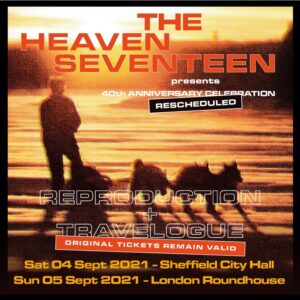 HEAVEN 17 presents the ‘Reproduction’ + ‘Travelogue’: 40th Anniversary Celebration at Sheffield City Hall on Saturday 4th September + London Roundhouse on Sunday 5th September 2021
HEAVEN 17 presents the ‘Reproduction’ + ‘Travelogue’: 40th Anniversary Celebration at Sheffield City Hall on Saturday 4th September + London Roundhouse on Sunday 5th September 2021
https://www.facebook.com/heaven17official/
https://twitter.com/heaven17bef
https://www.instagram.com/heaven17official/
Text and Interview by Chi Ming Lai
29th July 2019, updated 6th August 2020

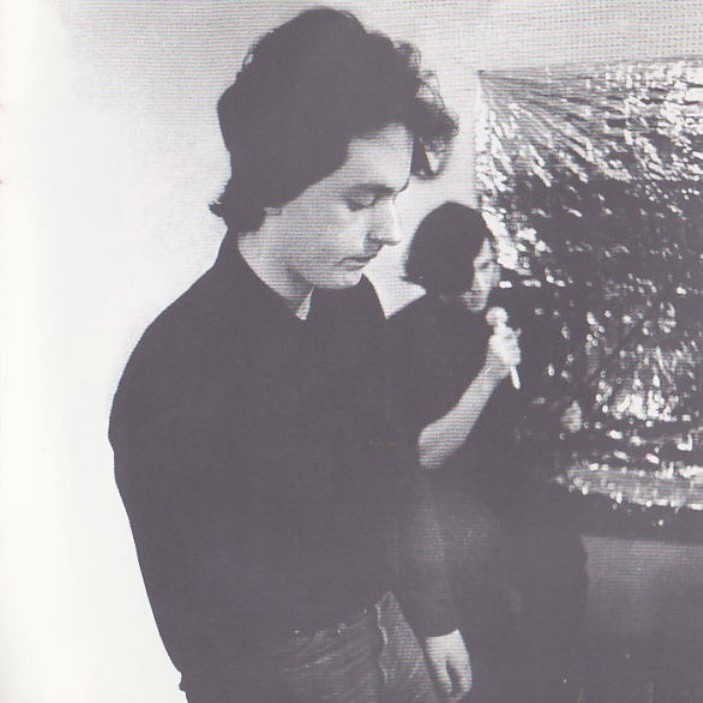
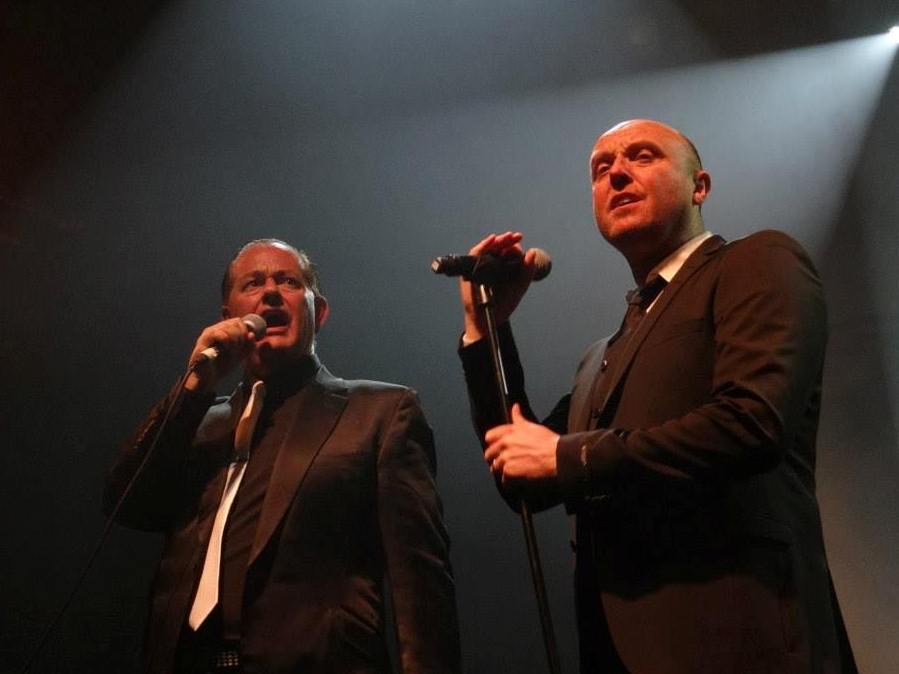
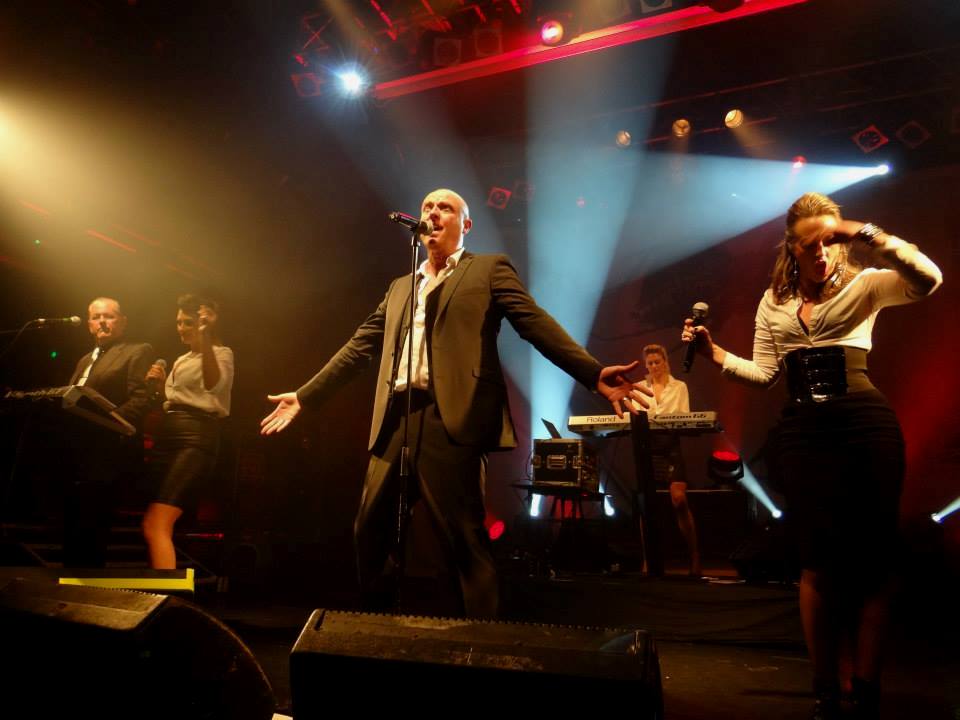
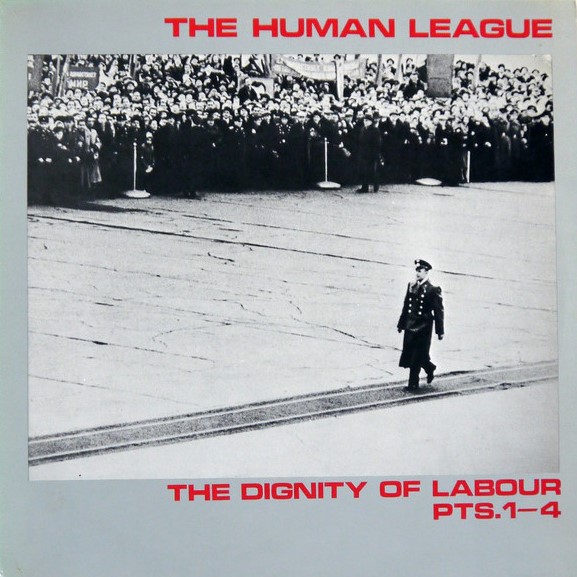
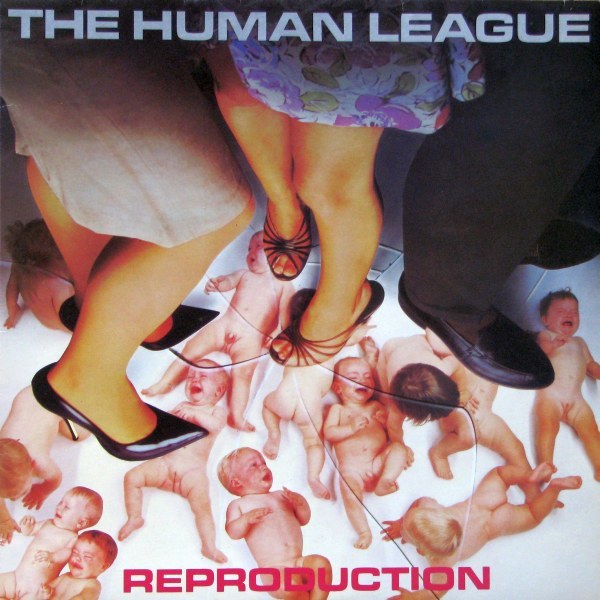
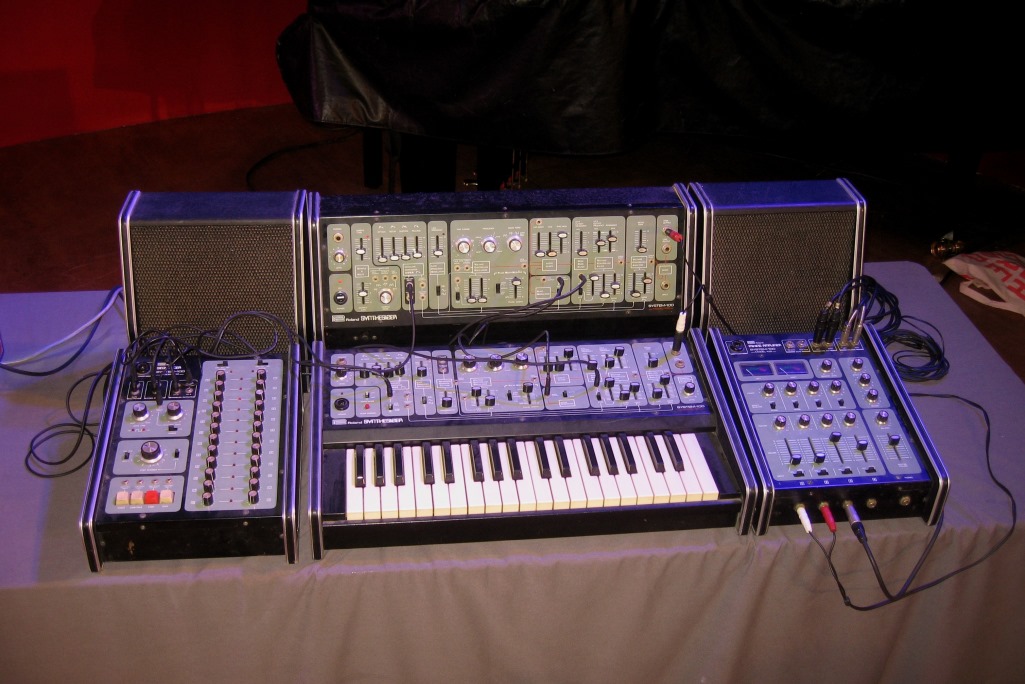
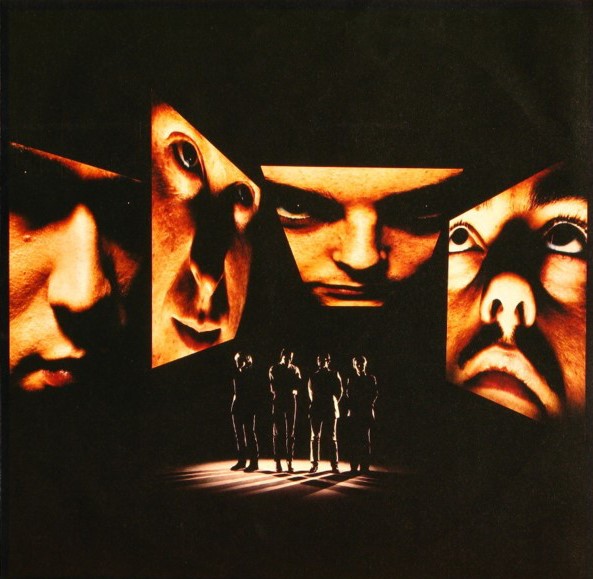
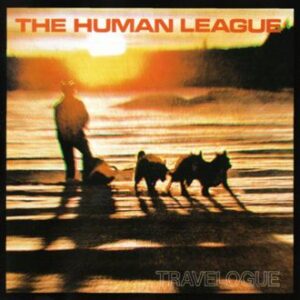
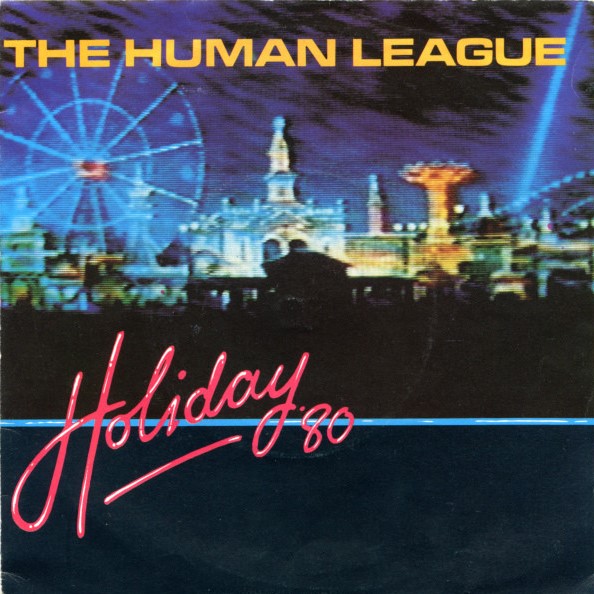
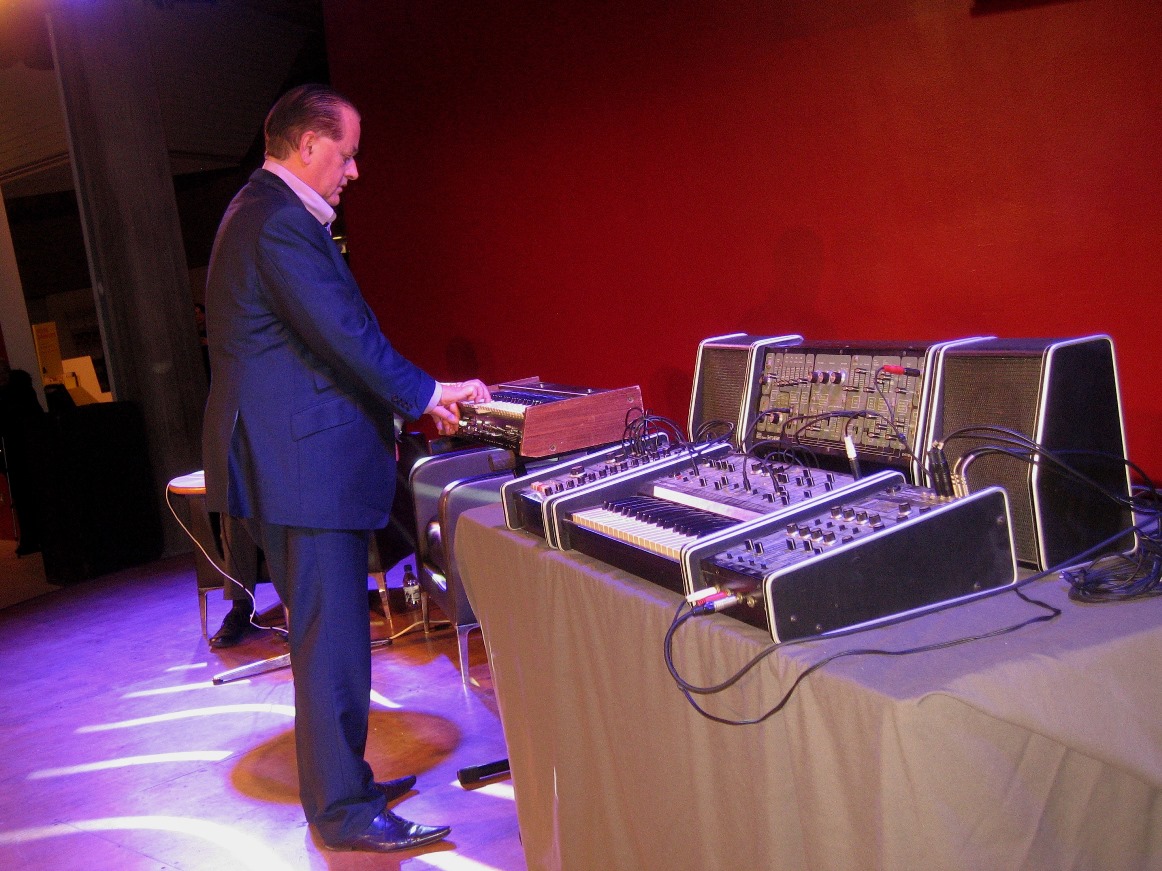
Follow Us!